After it almost became extinct, extended-range electric vehicle (EREV) technology is undergoing a resurgence, and not just in the form of new models from automakers including Ford, Mazda, Ram, Genesis, BYD, Deepal and Leapmotor.
At least two powertrain suppliers recently revealed new EREV systems that can be retrofitted to existing battery-electric vehicles (EVs), effectively turning EVs into hybrids and eliminating one of the biggest handbrakes on widespread EV adoption: range anxiety.
Horse Powertrain, a joint venture between Renault and Geely, used last month’s Shanghai motor show to reveal its Future Hybrid Concept, a compact hybrid powertrain designed for applications in existing EV platforms.
Hundreds of new car deals are available through CarExpert right now. Get the experts on your side and score a great deal. Browse now.
The system integrates an internal combustion engine (ICE), electric motor, and transmission into a single unit that can replace the electric drive system in EVs with minimal modifications, allowing automakers to offer hybrid powertrain options for existing EVs without major engineering investment.
Horse’s Future Hybrid Concept is based around a 1.2-litre three-cylinder petrol engine, which operates exclusively as a generator to recharge the vehicle’s existing battery, switching on only when battery charge levels are low or driving conditions demand additional power.
The company says the super-compact EREV system can increase total driving range to 800km, or about 25 per cent more than the 600km offered by today’s most efficient EVs.
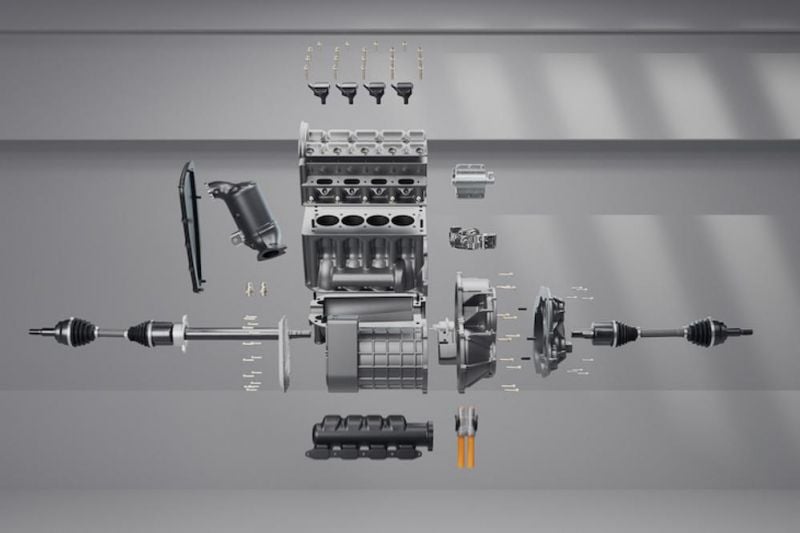
Horse claims a 25-litre fuel tank is sufficient for several weeks of typical urban driving, when the ICE largely remains switched off since most daily commutes take place in EV-only mode. And of course it can simply be refilled rather than recharged if required.
Designed for transverse powertrain applications, Horse’s EREV system includes an 800V booster allowing fast DC charging, a transmission and driveshafts enabling all-wheel drive operation in both EV and parallel power modes, an inverter, DC/DC converter, on-board charger and electronic power controller.
It has a ‘slimline’ top and a wider profile at the bottom, to help ensure compliance with global safety and crash standards.
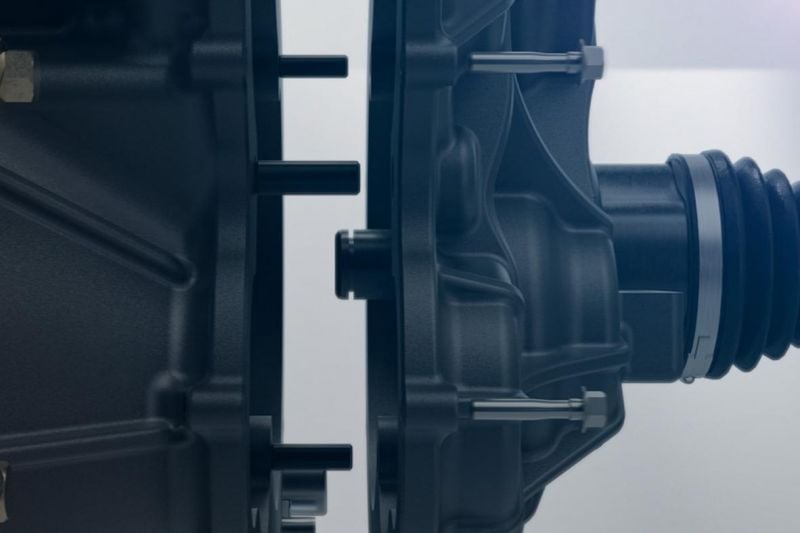
The Horse powertrain’s ICE can run on a wide range of fuels including petrol, E85 ethanol, methanol, and synthetic fuels, making it suitable for a variety of climates and markets – especially those with long distances between cities and where EV charging infrastructure remains in its infancy, such as Australia.
As in most EREVs, the engine is calibrated to run consistently in its most efficient rev range, which is claimed to contribute to up to 40 per cent lower emissions than conventional hybrid powertrains.
“Horse Powertrain is focused on solving the biggest problems facing automotive OEMs,” said CEO Matias Giannini.
“For over a decade it looked like BEVs were the only path to net zero, and OEMs planned accordingly. However, we’re now shifting towards a technology-neutral world, with different markets and applications each pursuing their own sustainable mobility journey.”
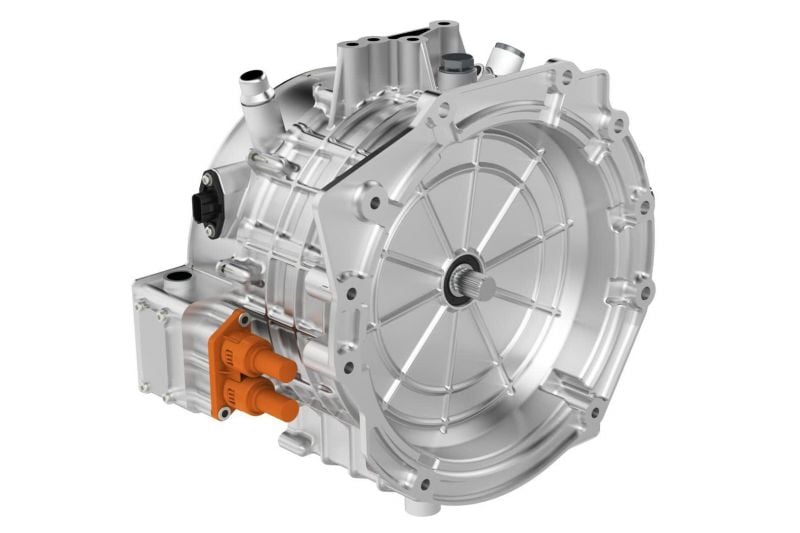
“The Future Hybrid Concept is designing as a single-piece combustion engine, motor, and transmission unit, reducing the complexity of a hybrid powertrain,” said Ragnar Burenius, the chief engineer of xHEV systems at Horse Powertrain.
“This allows more flexibility for its packaging, allowing for it to be integrated in existing BEV platforms with minimal modifications to the vehicle.”
Horse Powertrain, which has 17 manufacturing plants, five R&D centres and 19,000 employees globally, says it expects vehicles using the Future Hybrid Concept to hit the road by 2028.
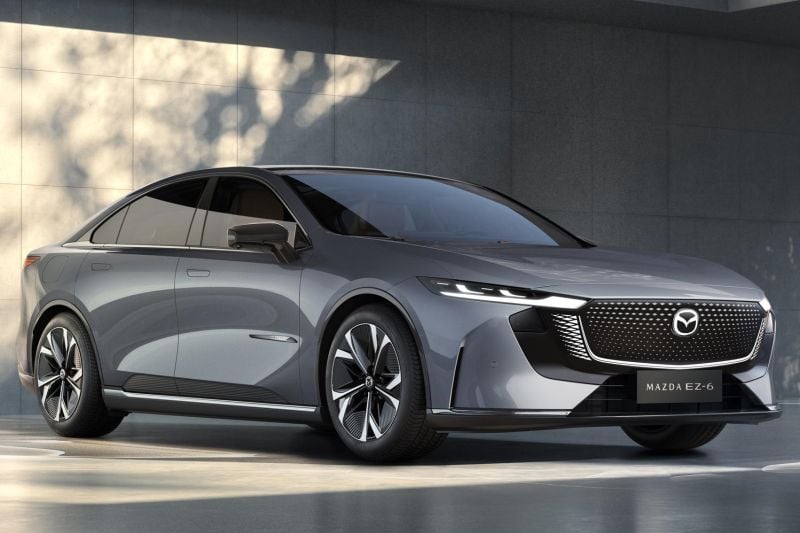
Before then, the company will supply direct-injection ‘HR13’ 1.3-litre four-cylinder turbo-petrol engines for the 2026 Caterham Academy race series, producing 97kW of power and 176Nm of torque.
Horse’s EREV project is backed by several strategic partners, including Saudi energy giant Aramco, which hopes to accelerate the development program ahead of its global deployment.
The company – which also produces mild-hybrid (MHEV) and plug-in hybrid (PHEV) powertrains, as well as manual and automatic transmissions, and even flex-fuel PHEV powertrains for marine applications – says it will supply auto brands including Renault, Geely, Volvo, Nissan, Mitsubishi and Proton.
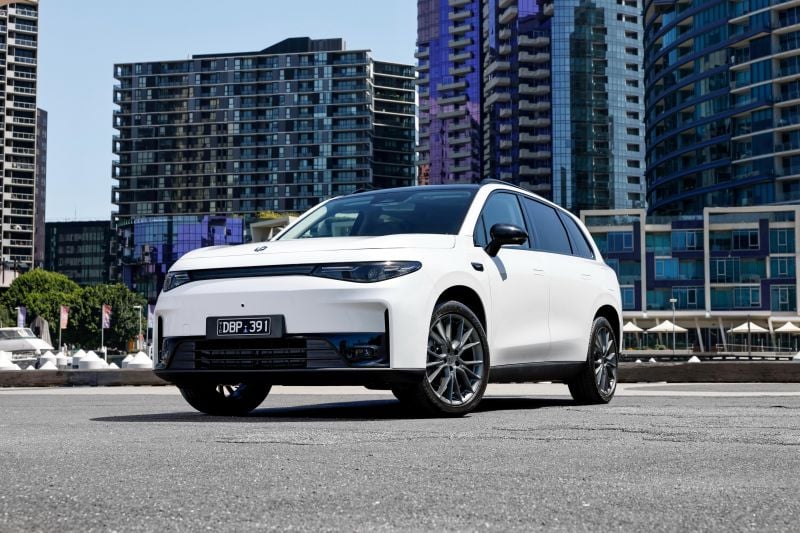
Just days after Horse revealed its EREV powertrain in China, German automotive supply giant ZF announced it will commence production of a similar range-extender powertrain next year, dubbed the ZF eRE.
Two off-the-shelf versions of ZF’s range-extender system will be available – the electric Range Extender (eRE) and the electric Range Extender plus (eRE+) – both comprising a small petrol engine that produces between 70-100kW in the former and 70-150kW in the latter.
The eRE combines an electric motor and an integrated converter via a planetary gearset, while the eRE+ adds an “intelligent clutch and differential” that allows it to be used either only as a generator or as a secondary drive unit.
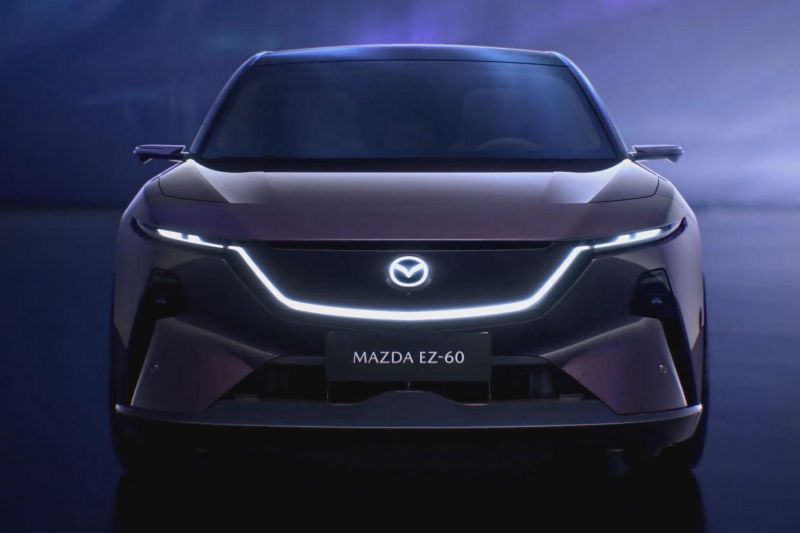
ZF also sees a market for would-be EV buyers worried about driving range, and says EREVs are better than PHEVs because they’re cheaper to produce, quicker to develop, require simpler supply chains and, per Horse’s system, can reduce fuel consumption and emissions by running at its most efficient rpm since the engine isn’t attached to the wheels.
“Although the all-electric range of passenger cars is around 500km on average, range anxiety still influences a wide range of buyers when choosing their next vehicle,” said Dr Otmar Scharrer, senior vice president of R&D at ZF’s Electrified Powertrain Technology unit.
“These represent a real alternative to larger – and thus more expensive – batteries or plug-in hybrids. The new interest and the increased demand for range-extenders shows that the potential of this technology is far from exhausted – in particular for model platforms that are already designed for battery-electric drivelines.
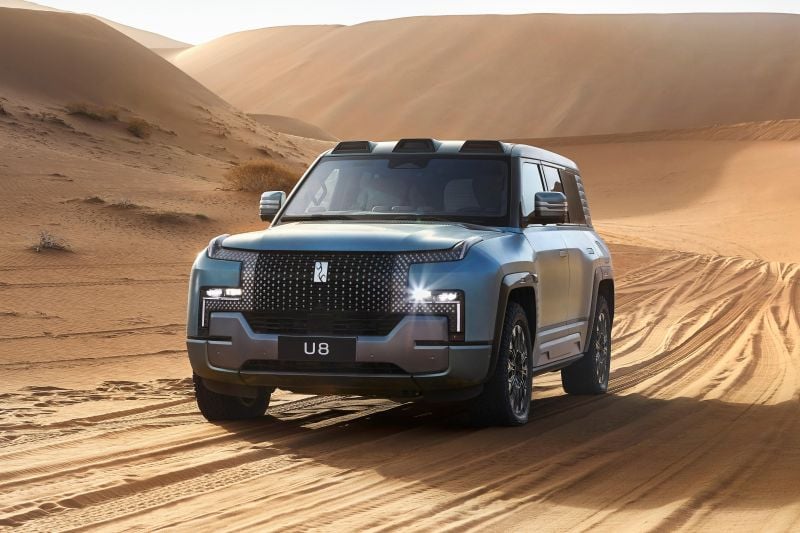
“Behind our solutions is the system and platform concept. This means that we are optimally equipped to be able to respond to all customer and market requirements with shorter development cycles.”
Also known as range-extender EVs, EREVs aren’t new. Early examples included the relatively short-lived Holden Volt and BMW i3 REX, which were axed Down under in 2012 and 2021 respectively, as well as the Fisker Karma and the rotary-powered Mazda MX-30 e-SkyActiv R-EV, neither of which were sold in Australia.
The Leapmotor C10 mid-size electric SUV, however, was recently made available with an ‘REEV’ powertrain option for $2000 less than equivalent EV variants.
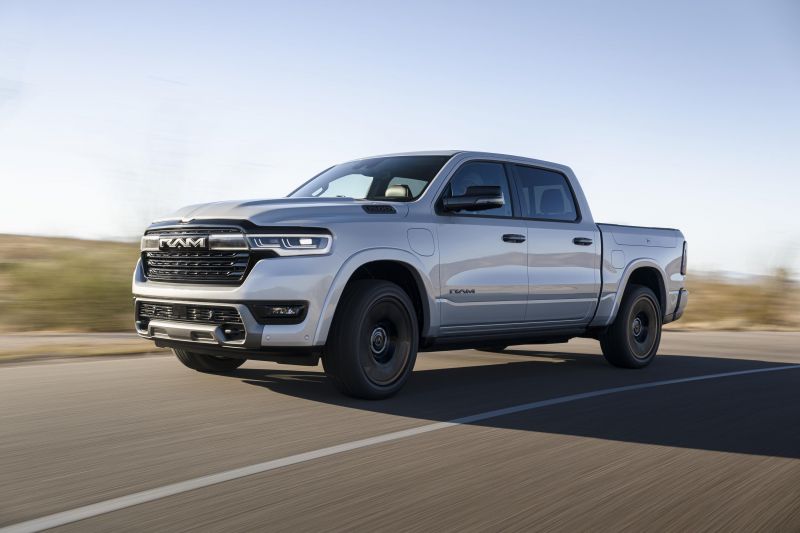
As demand for EVs wanes in major auto markets including the US, there are several other EREV powertrains on the horizon for models including the Mazda EZ-60/CX-6e large electric SUV, the Genesis GV70 mid-size luxury SUV, and BYD’s Yangwang U8 large luxury SUV.
Ford recently announced it will invest heavily in EREV powertrains for its mid-size and heavy-duty models amid slumping EV demand in North America, where Volkswagen-backed Scout Motors will offer range-extender powertrain options across its upcoming electric SUV and pickup range.
Ram will trump both brands with its Ramcharger, an extended-range pickup that could also be sold here. Ram Trucks Australia chief Jeff Barber recently told CarExpert the EREV, which employs a Pentastar V6 to extend its range, was “better suited to our geography here” than the battery-electric Ram 1500 REV.
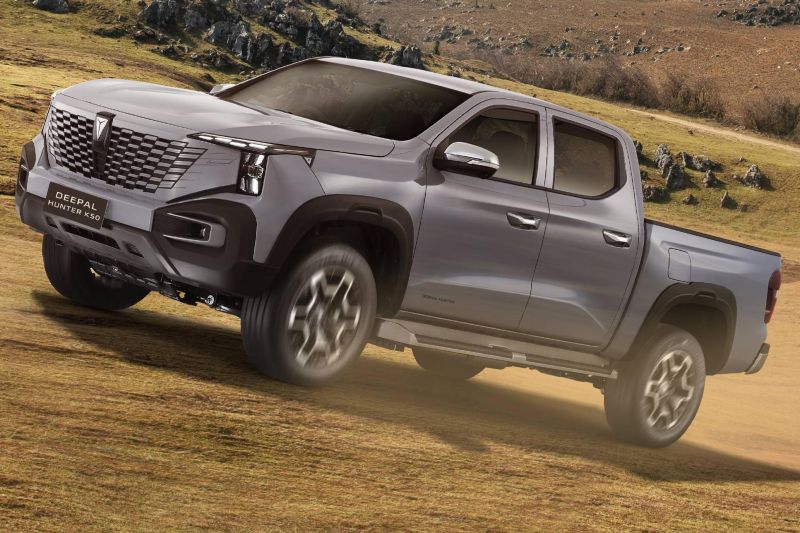
However the first EREV ute available in Australia could be the Deepal Hunter K50 dual-cab, which uniquely combines front and rear electric motors with a front-mounted 2.0-litre turbo-diesel engine to charge a 31.2kWh lithium iron phosphate (LFP) battery.
The Chinese carmaker, which will introduce the Deepal E07 ‘transformer’ electric SUV/ute here later this year, claims the result is combined fuel consumption of just 1.3L/100km and 900km of total driving range including 131km of electric-only range (CLTC).
That’s more than the plug-in hybrid BYD Shark 6, GWM Cannon Alpha PHEV and the upcoming Ford Ranger PHEV, all of which are less efficient.
Not all automakers are going all-in on EREVs for all markets, however.
Volkswagen CEO Thomas Schäfer told Autocar that range-extender powertrains make sense in large cars in China, but that PHEVs are better for markets like Europe.
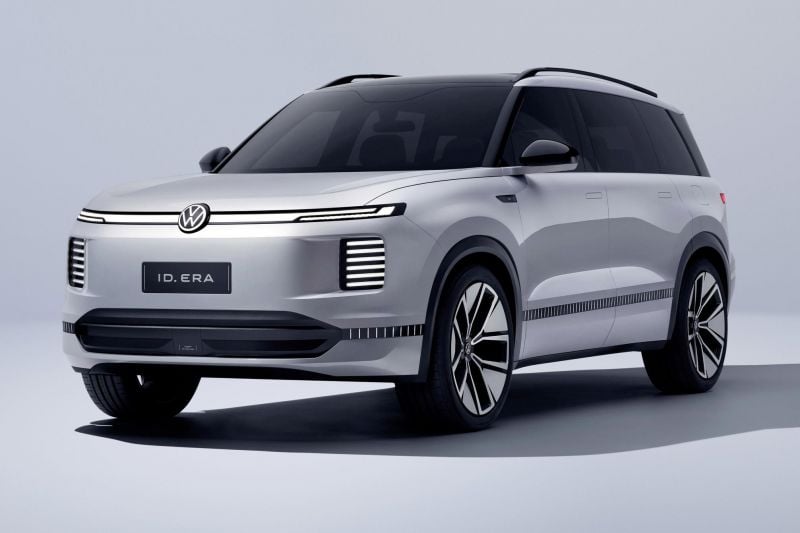
When the extended-range Volkswagen ID Era concept was revealed in the Shanghai show with a 1000km range, the brand’s sales and marketing chief said EREV tech could provide a “very good intermediate step for many consumers” and the powertrains could even “have relevance in Europe”.
But this week his boss said VW would not engineer EREV powertrains for a wide range of models outside Europe.
“The technology is not really new. It came up again and spiked in China specifically, but probably also in the US it’s applicable – in predominantly larger vehicles,” he told Autocar.
“It makes sense if you have any kind of CO2 regulation and you need to comply with it, but in the bigger cars… The questionable area is in the smaller space. While you have PHEVs, do you really need range-extenders?
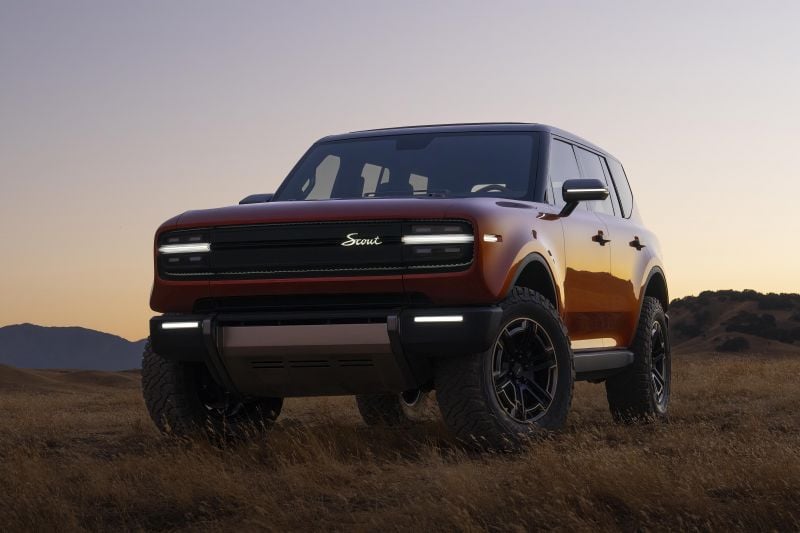
“It’s an expensive technology and from a driveability and cost point of view, it makes no sense to have both range-extenders and plug-in hybrids.
“In bigger cars, yes. Scout, for example, in the US will have a range-extender. But it remains to be seen if this is just a spike or it will actually be a bigger trend.”
GWM’s president Mu Feng also reportedly said, “Great Wall Motors would rather die than make extended-range vehicles”, arguing they serve only as a transitional powertrain and don’t align with the company’s long-term development plans.
According to Car News China, Mr Mu argued EREVs are “pseudo-electric” and rely primarily on fossil fuels, have small batteries and therefore limited electric range, and offer inferior fuel economy to hybrids but worse performance than pure electric vehicles.


